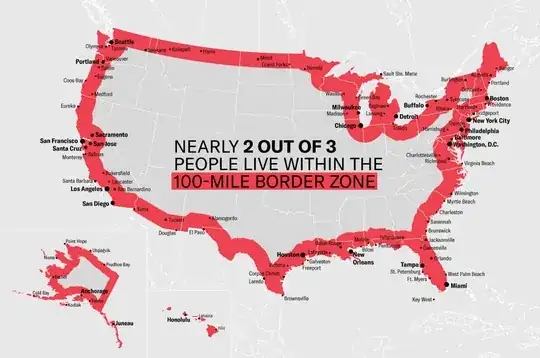I hope that it is obvious from the questions my inquiry is NOT politically motivated, but seek to understand how citizens can avoid repeating a similar long-term detention.
A US citizen was detained for 23 days by CBP. The CBS article indicates that the citizen was denied a phone call. After one month, his case was expedited when an attorney brought the issue to the press.
- Did the citizen have the right to make a phone call after being detained?
- If not, what prevents the indefinite detention of the citizen?
- Absent any indication of a crime or violation, does CBP have the authority to detain a US citizen if presented with proper identification documentation (passport card, passport)?
- What obligation does CBP have to process a detained US citizen in a timely manner?
- Does CBP \ ICE have juris diction or authority to demand ID from citizens in a non-border or non-airport context?
The above questions are posed because, I would like to understand:
- Did the citizen do anything to warrant the detention?
- Is there anything the citizen could have done at the checkpoint to avoid detention?
- If the citizen refused to answer CBP questions, could this produce a better outcome?
- Once, detained, what could the citizen do to reduce the detention duration?
- What are the lessons-learned for other citizens?
- Why is it that the CBP process did not resolve the matter in timely manner and was not resolved until media indicated attention forced the issue? There is a claim that 2/3 Americans live in the CBP inspection zone:
I realized that the subject matter is politically charged, however, I would like to keep the politics out of the dialogue and focus on the legal questions of the case. Obviously, I am not a lawyer and seek to understand the contours of law and its resulting process.
Update: CBS news indicates the detention of American Passport Holders in CBP detention of unknown duration:
Last week, a California congresswoman visiting the Border Patrol's processing center in McAllen encountered a 13-year-old girl holding a U.S. passport. The girl was waiting with her mother, who had allegedly crossed the border illegally. After inquiries were made, the Border Patrol released both.
